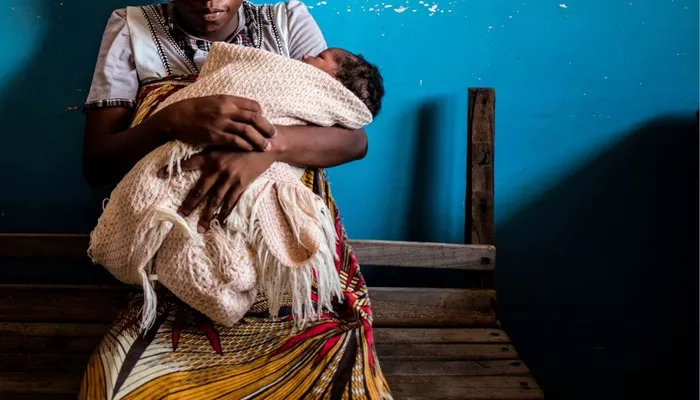Nyala, Sudan – South Darfur is facing a severe maternal and child health crisis, as highlighted in a recent report from Médecins Sans Frontières (MSF). The report reveals alarming rates of preventable deaths among pregnant women, new mothers, and children, which far exceed the aid that MSF can provide.
The report titled Driven to Oblivion: The Toll of Conflict and Neglect on the Health of Mothers and Children in South Darfur indicates that between January and August 2023, maternal deaths in just two MSF-supported hospitals accounted for more than seven percent of all maternal deaths recorded in MSF facilities worldwide this year. A malnutrition screening showed that child malnutrition rates in the region exceed emergency levels, highlighting the urgent need for international intervention.
The United Nations (UN) is being called upon to take immediate action to prevent further deaths in South Darfur. MSF urges the UN to expedite the return of its staff and agencies to the region and to utilize all available resources and political influence to deliver aid to those in need. A coordinated international response, backed by sufficient funding and persistent pressure on conflicting parties, is necessary to avert mass starvation and ease the suffering of millions.
“This crisis is unlike anything I have encountered in my career,” said Dr. Gillian Burkhardt, MSF’s sexual and reproductive health manager, during her visit to Nyala. “Multiple health emergencies are occurring at once with almost no international support. We are witnessing shocking numbers of deaths among newborns, pregnant women, and new mothers. Many of these fatalities stem from preventable conditions, but the healthcare system has nearly collapsed.”
In the first eight months of 2023, Nyala Teaching and Kas Rural hospitals reported 46 maternal deaths. MSF provides obstetric care at these facilities, but many women arrive in critical condition due to the lack of functioning health centers and high transportation costs. About 78 percent of these deaths occurred within the first 24 hours of admission. Sepsis emerged as the leading cause of maternal death in MSF-supported facilities, primarily due to unsanitary delivery environments lacking basic supplies like soap and clean instruments. The limited availability of antibiotics exacerbates the situation, as women often find no treatment options upon arrival at hospitals.
Maria Fix, MSF’s medical team leader in South Darfur, shared a harrowing story: “A pregnant patient from a rural area waited two days to gather the money needed for care. When she reached a health center, they had no medications, so she returned home. After three days, her condition worsened, and she had to wait five hours for transportation. By the time she arrived at our facility, she was in a coma. Unfortunately, she died from a preventable infection.”
The crisis extends to children, with thousands at risk of death from starvation and preventable diseases. From January to June 2024, 48 newborns died from sepsis in the Nyala Teaching and Kas Rural hospitals, representing a survival rate of only 80 percent for newborns diagnosed with the condition. In August, screenings conducted on 30,000 children under two revealed that 32.5 percent were acutely malnourished—well above the World Health Organization’s emergency threshold of 15 percent. Additionally, 8.1 percent of screened children were severely acutely malnourished.
Once a center for humanitarian aid, Nyala has seen most organizations leave since the onset of conflict, and the UN currently lacks international staff in the city. MSF stands as one of the few international organizations still operational. From January to August, MSF teams provided over 12,600 ante- and post-natal consultations and assisted in 4,330 deliveries, both normal and complicated.
Dr. Burkhardt, who previously worked in North Darfur, emphasized the ongoing humanitarian crisis: “The gap between the urgent need for healthcare, food, and basic services and the inadequate international response is disgraceful. We urge donors, the UN, and international organizations to increase funding and expand maternal health and nutrition programs.”
She added, “While we understand that Sudan presents challenges, waiting for these challenges to resolve on their own will not suffice. For many mothers and children, it may already be too late. Risks must be managed, and solutions must be found to prevent further loss of life.”
Conflict continues to exacerbate the maternal and child health crisis, causing displacement and violence. Access to lifesaving aid is often obstructed or restricted by warring factions and their armed groups.
The ongoing crisis threatens to entrap families in cycles of malnutrition and illness that could persist for generations.
One caretaker described their family’s plight: “The mother of the twins died from severe bleeding, leaving behind eight other children. My husband and I try to care for them, but we don’t earn enough to feed everyone. Now we’re 13 in the house. We struggle, living on porridge and sauce with a bit of salt and a few green leaves.”
You Might Be Interested In


